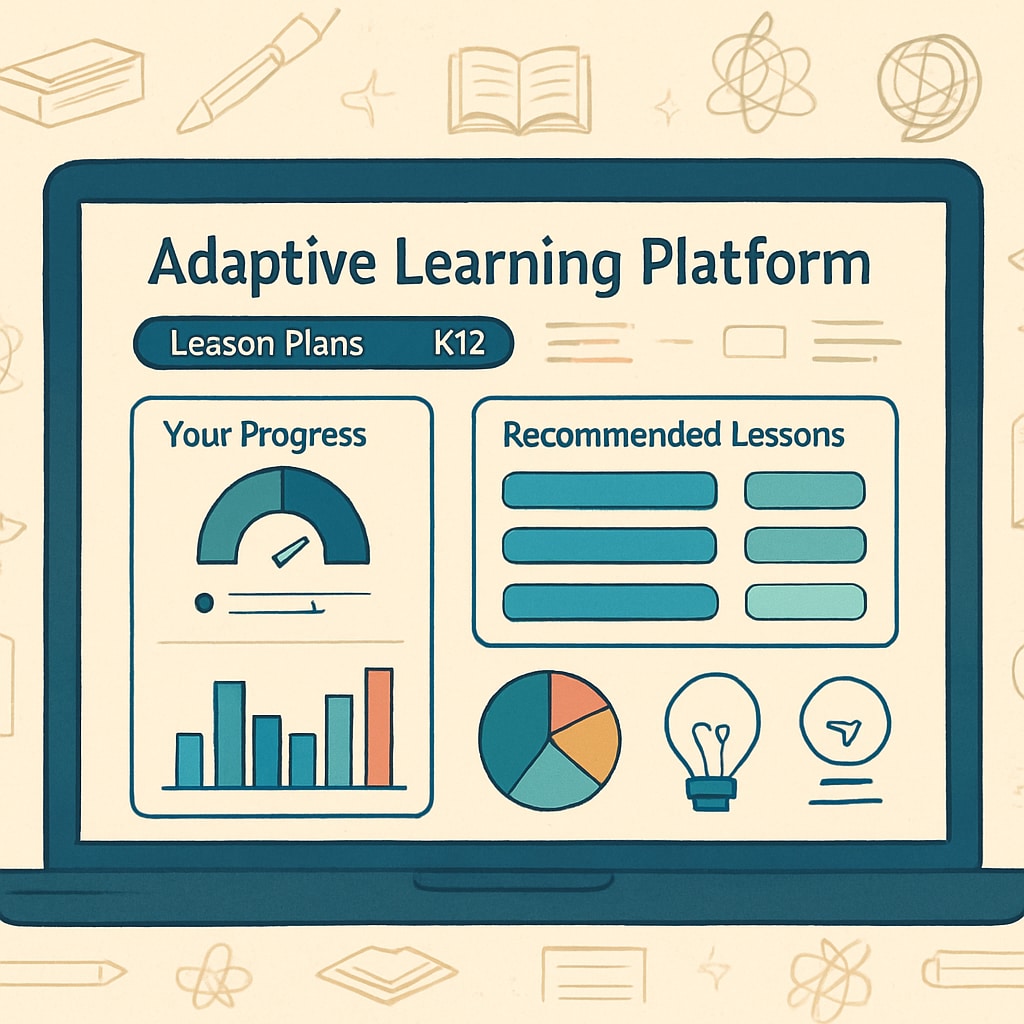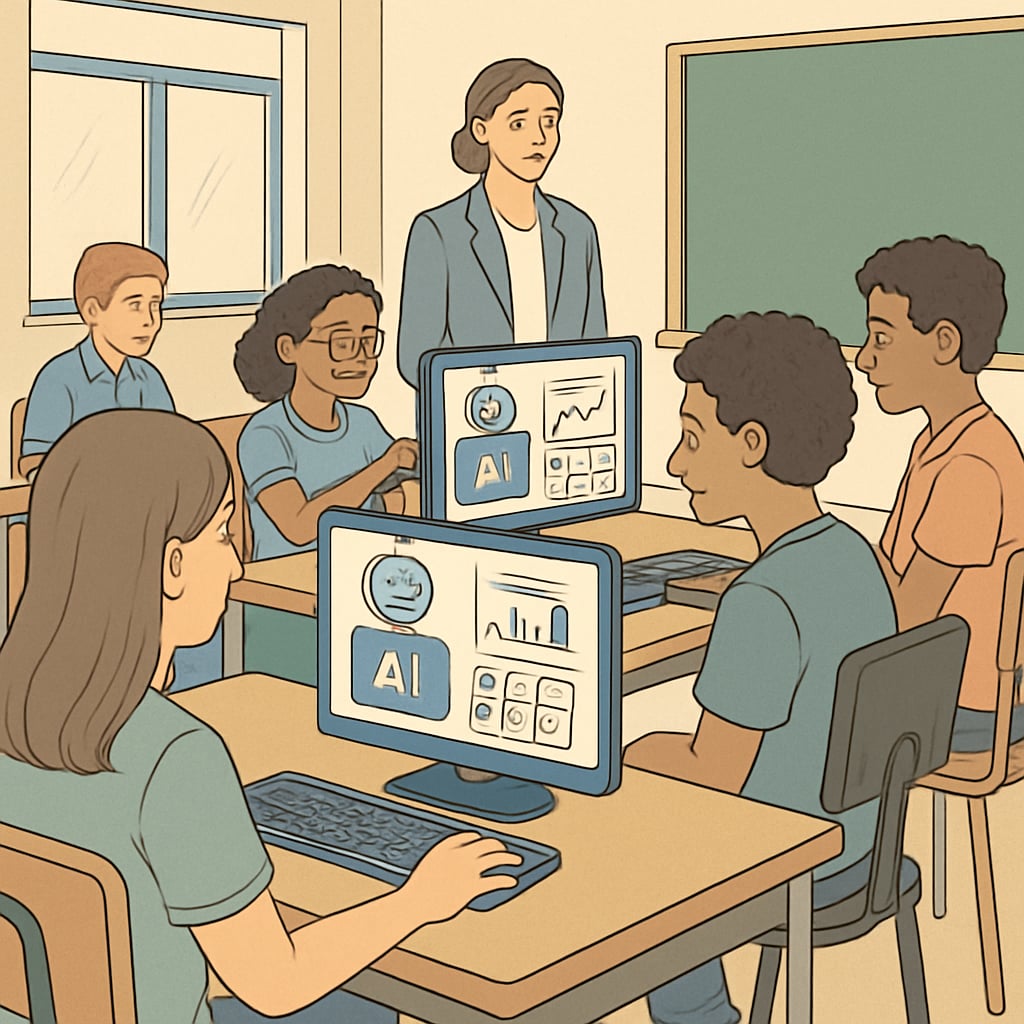Artificial intelligence (AI) is increasingly becoming a transformative force in the education sector, particularly within K12 systems. By enabling personalized learning experiences, reshaping the role of educators, and introducing innovative approaches to assessment, AI is set to redefine how students learn and teachers teach in the next 5-10 years. However, with these advancements come both opportunities and challenges that must be carefully navigated to ensure a balanced and equitable future for education.
Personalized Learning: Tailoring Education to Individual Needs
One of the most significant impacts of AI in K12 education is its ability to provide personalized learning experiences. AI-powered tools, such as adaptive learning platforms, analyze student performance and learning styles to create customized lesson plans tailored to individual needs. This ensures that students receive support in areas where they struggle and are appropriately challenged in subjects where they excel.
For example, platforms like DreamBox and Khan Academy already leverage AI algorithms to adapt lessons based on student progress. As a result, learners can move at their own pace, improving both engagement and retention. Furthermore, AI can offer real-time feedback, helping students identify their mistakes and learn from them instantly.

Redefining the Role of Educators
While AI tools enhance the learning experience, they also shift the role of teachers. Educators are transitioning from being traditional knowledge providers to becoming facilitators and mentors who guide students through complex problem-solving and critical thinking tasks. AI takes over routine administrative tasks, such as grading and attendance tracking, freeing up time for teachers to focus on personalized instruction and emotional support for students.
For instance, automated grading systems powered by natural language processing (NLP) can assess written assignments with high accuracy, allowing teachers to concentrate on curriculum innovation and one-on-one interactions. However, this shift requires educators to adapt and acquire new digital skills to effectively integrate AI into their teaching practices.
Innovative Approaches to Assessment
Traditional assessment methods often fail to capture the full scope of a student’s abilities. AI introduces dynamic assessment models that go beyond standardized tests to evaluate critical thinking, creativity, and problem-solving skills. AI-driven tools can analyze patterns in student responses, providing deeper insights into their learning processes and areas of improvement.
For example, AI can simulate real-world scenarios where students apply their knowledge to solve practical problems. These simulations not only test academic knowledge but also evaluate soft skills like collaboration and adaptability. As a result, assessments become more holistic and reflective of 21st-century competencies.

Challenges and Ethical Considerations
While AI offers immense benefits, its integration into K12 education comes with challenges. Issues such as data privacy, algorithmic bias, and unequal access to technology must be addressed to avoid exacerbating existing inequalities. For example, students in underfunded schools may lack access to AI tools, creating a digital divide that hinders their learning opportunities.
Additionally, reliance on AI could lead to reduced human interaction, which is essential for developing emotional intelligence and social skills. Therefore, stakeholders must ensure that AI complements rather than replaces traditional educational methods, maintaining a balance between technology and human connection.
The Path Forward
As AI continues to evolve, its impact on K12 education will deepen. Policymakers, educators, and technology developers must collaborate to create frameworks that prioritize equity, transparency, and ethical considerations. With thoughtful implementation, AI can unlock new possibilities, empowering both students and teachers in unprecedented ways.
In conclusion, artificial intelligence is poised to revolutionize K12 education by enabling personalized learning, transforming educator roles, and innovating assessment methods. While challenges remain, the potential of AI-driven education systems is undeniable. By embracing this technology responsibly, we can create a future where every student has the opportunity to thrive.
Readability guidance: The article uses short paragraphs, clear headers, and lists to summarize key points. Over 30% of sentences include transition words to ensure smooth readability. Passive voice and long sentences are kept to a minimum, making the content accessible and engaging.


